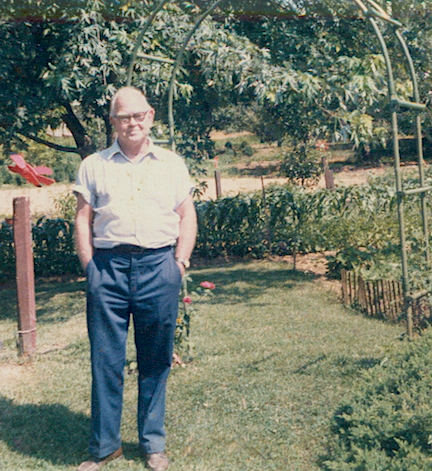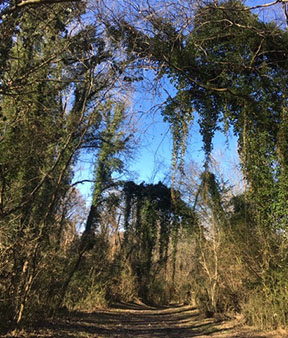I Think I Attract the Mentally Ill
An author on book tour encounters his public
“Nonsense!” she said. “It’s the bookstores that draw them in. They go there because they have no other place to go. Bookstores are warm and well lit and safe. They’re comforting. If I was mentally ill and had been thrown out of some state facility, I’d go to a bookstore, too.”
Then she added, “I’m sure that Nicholas Sparks has the same problem when he’s doing in-store events.”
Her feeble attempt to reassure me only helped reinforce my long-held suspicion. I began to envision a store full of women screaming, snapping pictures, and throwing underwear at Nicholas Sparks. They were hanging on his every word. They loved every moment that he afforded them away from their far duller lives without him. If these fans could be called mentally ill, it was some mild universal form of illness born out of solitary loneliness or, even worse, being married to men who really didn’t know them.
Nicholas Sparks offered comfort as his protagonists always suffered the loss of love, only to find a deeper, richer love and fulfillment by the end of each book. Who wouldn’t want to believe that if their disinterested husband or boyfriend was to die, there would be a richer, better life waiting in the wings with someone who not only listened, but who cared?
As much as I truly wanted to believe my editor, nothing she said could remove the gnawing sense from within that seemed to say I had been singled out by the deranged for special treatment.
Maybe she was right, that the stores were providing the perfect Petri dish for the broken masses. Yet, there seemed to be more to it than just that. After all, I had written about an emotionally fragile woman who re-interred the dead and created a cemetery in her backyard. And it was about the Civil War. For Pete’s sake, if I didn’t want to attract the fringe, what was I thinking?
No, the truth was there before me from that first event at my local bookstore, when two clearly problemed devotees of a book they have never read—a man and a woman—got in a slugfest over who would be last to meet me, and the woman won. Somehow in the commotion, as the staff was ushering me out a side door, I knew in my heart that this was going to be a long book tour.
They seemed to come from out of thin air. What should have been ordinary, run-of-the-mill book events were turned into three-ring circuses before the watching world. The craziest ones always wanted to be last in line, wanted to kidnap my attention. Understand, I’m not talking about the regular folks who stood in line to tell me about an ancestor who fought in the Civil War. They were fine—good, solid folks who simply loved history or “their people” or the history of “their people.” There can be no complaint with them.
No, I am talking about the other ones, the ones who had “special messages” for me. Messages that no one else could hear, that had to be delivered in whispers. They were the ones who would come up behind me while I was signing books and lay hands on my shoulders and start praying in tongues. Or there was the lady who spread out naked pictures of herself, reminding me that most folks should best keep their clothes on. Let’s just say, I’m betting Nick Sparks gets better naked pictures.
There were the ones who would shake my hand when I signed their book, but, somehow, forget to release it. They followed me to my car, gushing stories about really nothing. They often spoke about leaving their lives behind and traveling with me on the tour or holding a séance to retrieve the dead I had written about.
The dead—above all, there were the dead. The kid from The Sixth Sense had nothing on me. Oh, maybe the fact that he could actually see them puts him in another league, but according to my following, the dead surround me at every turn.
The first time someone mentioned the dead—who would soon seem to crowd out every bookstore event—I jokingly replied that it was regrettable so few of them still bought books. I quickly learned not to joke about the dead. Don’t get me wrong. The dead never seemed to bear offense, or if they did, kept it to themselves. No, it was only the living, the ones with their “special messages” for me, who seemed to have misplaced their sense of humor in the same spot where they had left their minds.
Somehow, as she groaned on about Nick Sparks, I realized my editor was not getting the picture. Nick Sparks’s problems, if he had any, were no doubt fueled by his devotees’ libido. I should be so lucky. Naked pictures of folks who should have had the decency to keep their clothes on are not like receiving a discrete pair of panties in my hand as I signed their book. Nor were there messages to meet up afterwards at my hotel’s bar. Like I said, most of the messages I got were from the dead.
Then again, maybe she was right. Maybe I had blown it all up. After all, I am a fiction writer. Point was, I needed to relax and enjoy those folks who took the time to come to store events, buy my book, and pray over me in tongues.
So we headed out to a signing for the paperback at a big chain store on the Upper West Side. Fortunately, in that neighborhood, there should be a good-sized gathering of Southerners who had gone north to seek fortune, but who still clung to their roots. But then again, this was New York, and there should be a healthy-sized crowd of unhealthy folks.
By the time we arrived, the crowd numbered around sixty, and sure enough, it was populated by a lot of Southerners. They were the ones wearing oxford cloth or plaid flannel shirts with khaki pants in November. They seemed comfortable in their clothes and manners. It was good that I was wrong. My editor needed to see that I could draw a good crowd of interested, educated readers.
Once it began, the event seemed to flow along with ease. After so many of these in-stores, I could do them in my sleep. Like anyone before an audience, I fed off their good wishes, and the event went well. That is, until I opened it up for Q & A.
From out of nowhere, a guy with the best Rastafarian hair I had ever seen on a white guy—part Jamaican, part Sideshow Bob—raised his hand. When I acknowledged him, he said he had a two-part question for me. He asked that I wait until he had finished asking both questions to answer them.
From the moment he opened his mouth, I knew this was not a two-part question; this was an assassination. His first question was whether I believed in reincarnation. I was numb as I stood there waiting for his next shot. From the dress of the crowd, it was clear that the room had its fair share of duck hunters, and I was this guy’s duck.
He asked me if I had been killed at the Battle of Franklin.
I paused until he asked me to answer the first question. I said, no, I didn’t believe in reincarnation. With that, he lunged from his seat and shrieked, “Well, I guess we have your answer to my second question, don’t we?”
I nodded and then turned to the audience and asked if they had any other questions about my book. My new friend was not to be ignored. Still standing in the middle of the special events area, he bellowed, “What would you say if I told you I was killed in Da Nang, Viet Nam, on April 24, 1968?”
Why did I do it? I’ll go to my grave asking myself why. For without pause, I turned and replied, “Cool!” I know it wasn’t the right response, but sometimes there is no other answer from someone of my generation.
He screamed back, “It wasn’t cool, buddy! I bled for over four hours until I finally pumped out every ounce in me and died. I can remember my body growing cold, yet the wracking pain only ending in my death. I was buried at Arlington with full honors and all you can say is ‘Cool!’ What kind of sick person are you?”
At that moment I was offered the opportunity to take the high road and humbly apologize, but I didn’t.
I waited for him to catch his breath and replied that as a Southerner, there was a uniquely Southern way to use the word “cool.” Often, I added, Southerners used the word “cool” in response to a great tragedy like “Your mother just died!” or “The world is coming to an end!” and I tried to ignore the puzzled looks on the faces of the Southerners in the audience. Maybe my response would fly and we could move on. But no, my new friend was not going to give me even this, and he raged, “I don’t believe you!”
Now we were at war, my dead, reincarnated, mentally ill friend and me. I asked how many folks in the gathering were Southerners, to which maybe twenty or so timidly raised their hands. I asked them, wasn’t it true that often, as Southerners, they had responded to shockingly bad news with “cool”? At that moment not one of them wanted to be there. Hell, none of us wanted to be there. But I wasn’t backing away and I was taking every one of my fellow Southerners with me. Reluctantly they joined in my big lie and sheepishly nodded yes. I had won. I had silenced the crazy one for good. Victory was sweet.
Now, regaining control of the room, I asked if anyone had one last question. Before anyone could even think of a question to ask, Sideshow Bob jumped back up and asked if he could ask just one more question.
Without waiting for permission he asked, “Do you know who killed JFK?”
I took a deep breath and without thinking I replied, “Yes.”
With longing earnestness he asked, “Who?”
I sized him up as I took my next breath and said, “I’m not telling.”
The event ended, and the bookstore folks ushered him way. I signed books and listened attentively to folks tell me about their ancestors who fought in the Civil War.
My editor quietly waited for me with my overcoat in hand. We left the store after thanking the staff for their help. As we made our way down the street, she said, “I may have been wrong. Maybe you’re really not attracting Nick Sparks’ crowd.”
Excerpted from Gathering: Writers of Williamson County , published by CPO Publishing. Copyright (c) 2009 by Robert Hicks. All rights reserved.


